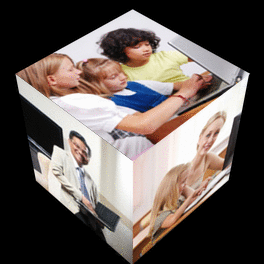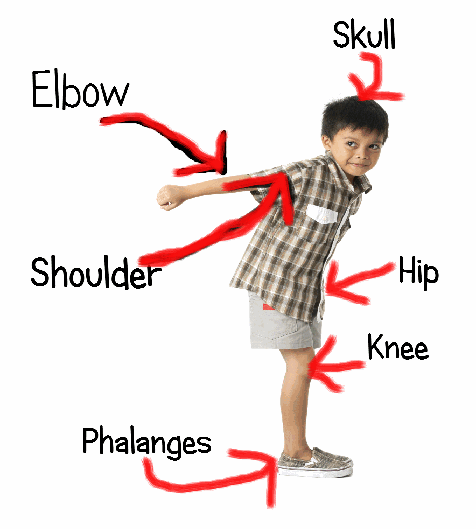Vivek Singh, education professional and contributor to Ask a Tech Teacher, has some interesting ideas on using your native LMS as a social learning platform. He has some great thoughts on breakout rooms, discussion forums, virtual reality, and gamifying lessons. I know you’ll enjoy their thoughts:
 Earliest forms of learning, dating back to the stone-age, involved storyboarding one’s experiences on rocks. These photo-stories would prove as a valuable resource for generations to come. Education, thus, has its roots in the earliest social interactions. One of the fundamental qualities that ensured our survival is collaboration through knowledge sharing, imitation and behavior modeling.
Earliest forms of learning, dating back to the stone-age, involved storyboarding one’s experiences on rocks. These photo-stories would prove as a valuable resource for generations to come. Education, thus, has its roots in the earliest social interactions. One of the fundamental qualities that ensured our survival is collaboration through knowledge sharing, imitation and behavior modeling.
Little has changed in today’s space-age. We inadvertently learn from our daily social interactions, with most of our informal learning happens through online sources of information. For example, YouTube, social media, news websites, even self-help videos/blogs which are present in every possible genre. This way of learning is attributed to the advent of the internet which has impacted the adoption of online learning software to facilitate formal education. LMSs are now being accepted as one of the ways to learn smartly. Taking note of the importance of social learning, some LMSs have begun to add features to promote social learning, for those students who are studying online. Learning Management System features that support social interactions amongst students, enhance the learning outcomes for any given online module or course.
What makes your LMS a social learning platform?
Features and activities that enable collaboration among learners could be implemented in the form of chat-boxes, discussion forums, live interactive sessions supporting real-time data sharing capabilities, and many more. Here are some critical features that can essentially leverage an LMS to become social in the true sense.
Multi-user video conferencing /Live classroom sessions and webinars
Conducting a live session provides a backbone to enable interaction among learners just as it allows communication between a learner and the tutor. Discussions held during these sessions helps provide an essential perspective to all different learners. WizIQ’s Virtual Classroom, for instance, enables hassle-free live-sessions across all devices and platforms. Thus, learners can participate in ongoing sessions, discuss critical aspects of a given topic with the tutor and get valuable feedback from peers and the tutors. Similarly, if a participant has experience with an issue that is being discussed, they can share with others the problems, hurdles they faced and the lessons they learned.
Seminars held online, are called webinars. It could be in the form of a presentation or a lecture, usually addressed to a broader audience via a video conferencing platform or social media. These may be hosted by experts, teachers, to facilitate interaction and social learning.
Discussion forums and chat features
Another feature that enables social interaction to its maximum potential is the inclusion of a discussion forum. Learners can indulge in discussions regarding topics they recently learned or are going to learn. Such a feature can become even more potent if provided through the LMSs mobile platform. Since most learners prefer using their cell phones for social interactions on a daily basis, using an app to interact with classmates would not seem like a new thing and would quickly get them onboard the discussion threads.
Before the advent of Facebook, most social interactions were undertaken using instant messaging apps such as AOL, Yahoo messenger or IRC. Chat boxes are still a preferred way to communicate when we need to have a dialogue with anyone. A modern LMS can include such an instant messaging feature with the possibility to have a conference chatroom where multiple users can share their views, have a discussion over a topic or share resource material with each other.
Breakout rooms
One of the critical areas of social learning, in the traditional classroom approach, was teamwork and collaboration. Mimicking this in the modern online classrooms, are the breakout rooms– where learners are segregated in smaller groups, to undertake discussions and projects as a team. This is a beneficial feature in most LMSs.
Gamification and Virtual Reality
Gamification is a pedagogical approach embedding the elements of gaming within eLearning modules to impart learning through competitive game-like activities. Use of features such as top-player charts, reward system involving points for completing tasks, and earning badges pushed learners to improve their performance while invoking a healthy competitive attitude. Be it awards, or achievement badges; learners indirectly enhance their skills and social learning, while gaining knowledge, through such interaction.
Virtual Reality simulations are a great way to mimic a real-life setting, virtually and letting learners decide/communicate and interact through this. Some LMSs have API integration capability which allows VR products to be integrated into their LMS platform.
Back to the basics
Complex queries of today require complex solutions. Moreover, complex solutions are achievable through an array of dedicated tools and features in a social learning platform. With this in the background, a social learning platform sets the stage for increased interaction and enhanced learning through and among peers. Benefits of returning to the basics of maintaining and expanding social communication and bringing it to life in the online education sector are beneficial for individuals and businesses alike. Social learning platforms, thus, hold incredible potential for enabling collaboration and promoting communication if applied correctly using the right features and toolset.
References
https://www.wiziq.com/virtual-classroom/
http://www.eurodl.org/index.php?p=archives&year=2006&hal&article=228
https://www.sciencedirect.com/science/article/pii/S0747563212001574
Click to access DabbaughPLE.pdf
http://www.irrodl.org/index.php/irrodl/article/view/902/1664
http://www.jstor.org/stable/40969261
https://www.wiziq.com/lms-software/
About the author
Vivek Singh is a Content Specialist at WizIQ, an EdTech company that offers an LMS and Virtual Classroom platform to educators.
Jacqui Murray has been teaching K-18 technology for 30 years. She is the editor/author of over a hundred tech ed resources including a K-12 technology curriculum, K-8 keyboard curriculum, K-8 Digital Citizenship curriculum. She is an adjunct professor in tech ed, Master Teacher, webmaster for four blogs, an Amazon Vine Voice, CSTA presentation reviewer, freelance journalist on tech ed topics, contributor to NEA Today, and author of the tech thrillers, To Hunt a Sub and Twenty-four Days. You can find her resources at Structured Learning.




































1 thought on “Make your LMS a social learning platform”
Comments are closed.